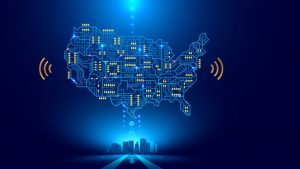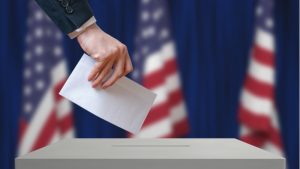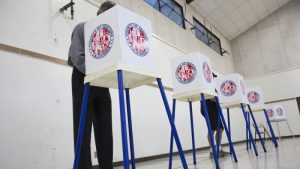While touting the Federal Communications Commission’s (FCC) efforts to smooth the path for 5G wireless infrastructure and service deployment, FCC Commissioner Brendan Carr told the Senate Commerce, Science, and Transportation Committee today that “accelerating infrastructure deployment [has] created a new challenge and opportunity.”
The National Association of State Chief Information Officers (NACSIO) today released its 2020 Federal advocacy priorities and zeroed in on the importance of cybersecurity.
Sens. Maggie Hassan, D-N.H., John Cornyn, R-Texas, Rob Portman, R-Ohio, and Gary Peters, D-Mich., introduced legislation on Jan. 16 that directs the Department of Homeland Security (DHS) to establish a Cybersecurity State Coordinator program.
The city of Pensacola, Fla., confirmed on Jan. 17 that personal information may have been compromised in a cyberattack on the city’s networks last month, but said that it can’t be 100 percent sure.
The Federal Bureau of Investigation (FBI) unveiled a new, internal policy to improve Federal procedures for notifying state and local officials of election infrastructure cyber threats.
A bipartisan group of House members introduced legislation on Jan. 16 that would use broadband service data mapping to identify areas of the country where high rates of poor maternal health overlap with a lack of broadband service access.
State CIOs say their top barriers to innovation are lack of funding, workforce skills, and time, according to a new report from the National Association of State Chief Information Officers (NASCIO) and Accenture.
The National Association of State Chief Information Officers (NASCIO) and the National Governors Association (NGA) today released new guidance on how state and local governments (SLGs) can better collaborate on cybersecurity matters.
The City of Las Vegas announced in a series of tweets on Jan. 8 that it dodged a major cyberattack. The city said it experienced a cyber compromise in the early morning hours of Jan. 7, but that it “immediately took steps to protect our data systems.”
In a nearly three hour hearing, the Committee on House Administration heard expert testimony regarding U.S. election security, with a specific focus on voting system security.
Recent
-
 Trump Signs Order to Preempt State AI Laws and Push Single Federal Framework
Trump Signs Order to Preempt State AI Laws and Push Single Federal Framework -
 Government, Industry, Academia Collaboration Fuels AI Progress
Government, Industry, Academia Collaboration Fuels AI Progress -
 Indiana DOE Partnership Targets STEM, Digital Learning Tools
Indiana DOE Partnership Targets STEM, Digital Learning Tools -
 States, Schools Harness Data and Workforce Programs to Combat Fraud, Cyber Threats, and Service Outages
States, Schools Harness Data and Workforce Programs to Combat Fraud, Cyber Threats, and Service Outages









